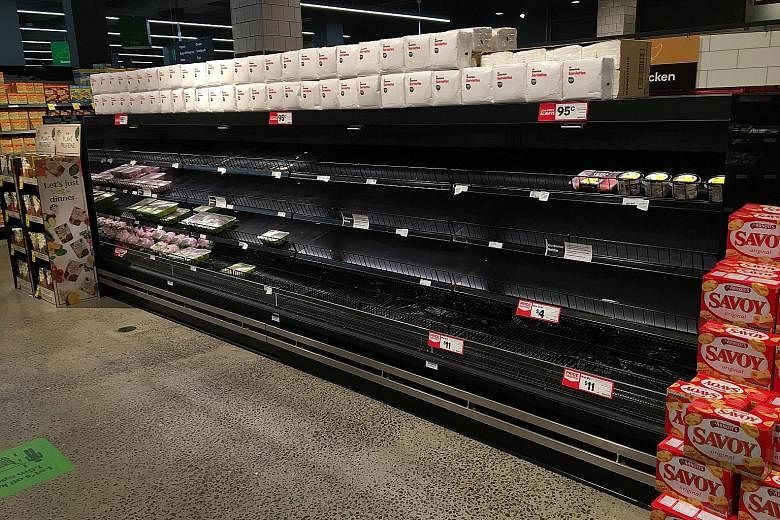MONTERREY (Mexico) • Ministers from a trans-Pacific trade bloc have agreed to fight protectionism and avoid food and medicine shortages during the coronavirus pandemic.
"We are committed to ensuring that supply chains remain open and connected... which plays an instrumental role in avoiding food shortages and ensuring global food security," they said in a joint statement published on Wednesday.
They also expressed backing for modernising the World Trade Organisation (WTO), and said they supported expanding the bloc by adding new members.
The 11-member Comprehensive and Progressive Agreement for Trans-Pacific Partnership (CPTPP) comprises Australia, Brunei, Canada, Chile, Japan, Malaysia, Mexico, New Zealand, Peru, Singapore and Vietnam.
The bloc represents 495 million consumers and a combined gross domestic product of US$13.5 trillion (S$18.5 trillion).
The pandemic has exacerbated a trend towards protectionism on the global stage, with a number of European countries taking steps to favour domestic investments, and ongoing sabre-rattling between the United States and China.
Lockdowns around the world have temporarily shattered the web of suppliers central to modern manufacturing.
"I am convinced we must take action to strengthen existing regional supply chains and to develop new ones" in the face of the coronavirus pandemic, Mexican Economic Minister Graciela Marquez said in her speech that inaugurated the meeting.
In a Facebook post yesterday, Singapore's Trade and Industry Minister Chan Chun Sing said the pandemic has demonstrated the importance of robust trading relationships and the need for countries to deepen economic cooperation and integration in order for businesses and workers to tap opportunities in other countries.
He said: "As a regional trade agreement, the CPTPP plays an important role in strengthening the region's connectivity and making supply chains more resilient and less vulnerable to shocks.
"It also opens up access to the regional markets for our goods and services and creates new pathways for business growth."
Mr Chan added: "This will help to lessen the adverse impact of the pandemic on businesses and lead to job opportunities for our workers. It is critical for all of us to commit to translate what has been agreed on into tangible benefits for our people and markets."
-
Comprehensive and Progressive Agreement for Trans-Pacific Partnership
-
11
Number of members in the trans-Pacific trade bloc.
495m
Consumers that the bloc represents.
US$13.5trillion
Combined gross domestic product of the bloc.
The members pledged to "facilitate the flow of essential goods and services during the pandemic, including medical supplies and equipment".
The statement said the WTO should demonstrate an ability to deliver "outcomes on 21st-century issues", in an apparent dig at the global trade organisation's more than decade-long deadlock in trade negotiations.
The US and China, the world's two largest economies, are not members of the CPTPP bloc, which was established in part as a counterweight to China's growing clout.
President Donald Trump withdrew the US from the agreement soon after he took office in 2017.
REUTERS

